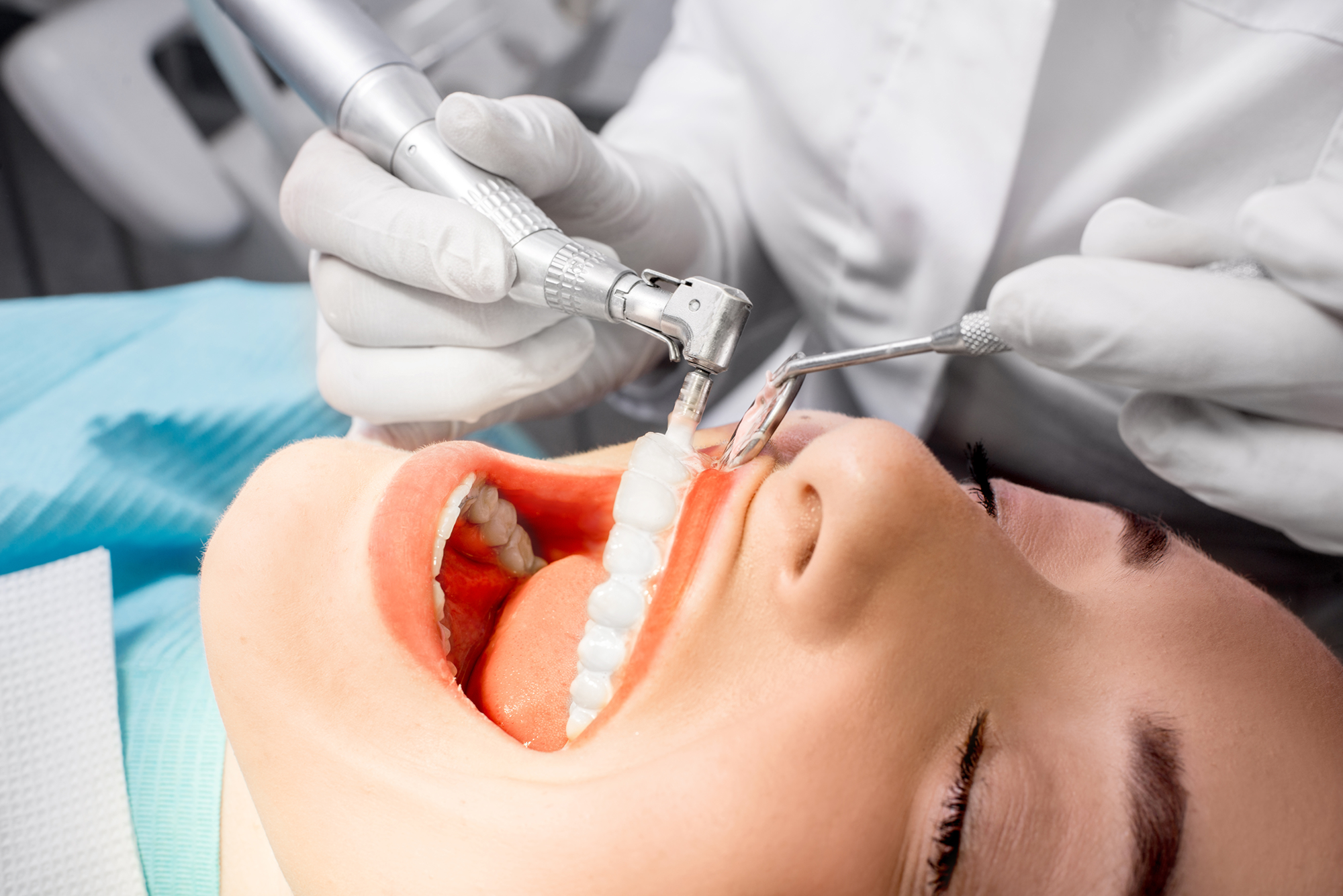
Teeth cleaning (also known as prophylaxis, literally a preventive treatment of a disease) is a procedure for the removal of tartar (mineralized plaque) that may develop even with careful brushing and flossing, especially in areas that are difficult to reach in routine toothbrushing. It is often done by a dental hygienist. Professional cleaning includes tooth scaling and tooth polishing and debridement if too much tartar has accumulated. This involves the use of various instruments or devices to loosen and remove deposits from the teeth.
As to the frequency of cleaning, research on this matter is inconclusive. That is, it has neither been shown that more frequent cleaning leads to better outcomes nor that it does not. A review of the research literature on the question concluded “the research evidence is not of sufficient quality to reach any conclusions regarding the beneficial and adverse effects of routine scaling and polishing for periodontal health and regarding the effects of providing this intervention at different time intervals. Thus, any general recommendation for a frequency of routine cleaning (e.g. every six months, every year) has no empirical basis. Moreover, as economists have pointed out, private dentists (or other dental professionals) have an economic incentive to recommend frequent cleaning, because it increases their revenues.
To whiten the natural tooth shade, bleaching is suggested. It is a common procedure in cosmetic dentistry, and a number of different techniques are used by dental professionals. There is a plethora of products marketed for home use to do this also. Techniques include bleaching strips, bleaching pens, bleaching gels and laser tooth whitening. Bleaching methods generally use either hydrogen peroxide or carbamide peroxide which breaks down into hydrogen peroxide. Common side effects associated with bleaching include increased sensitivity of the teeth and irritation of the gums.
Most dental hygienists recommend having the teeth professionally cleaned every six months. More frequent cleaning and examination may be necessary during treatment of dental and other oral disorders. Routine examination of the teeth is recommended at least every year. This may include yearly, select dental X-rays. See also dental plaque identification procedure and removal.
Good oral hygiene helps to prevent cavities, tartar build-up, and gum disease.
For more information please feel free to call our office at (956) 318-3384 or send us an email by clicking HERE.
Wikipedia (Link to article) Content under Creative Commons Attribution-ShareAlike 3.0 Unported License
